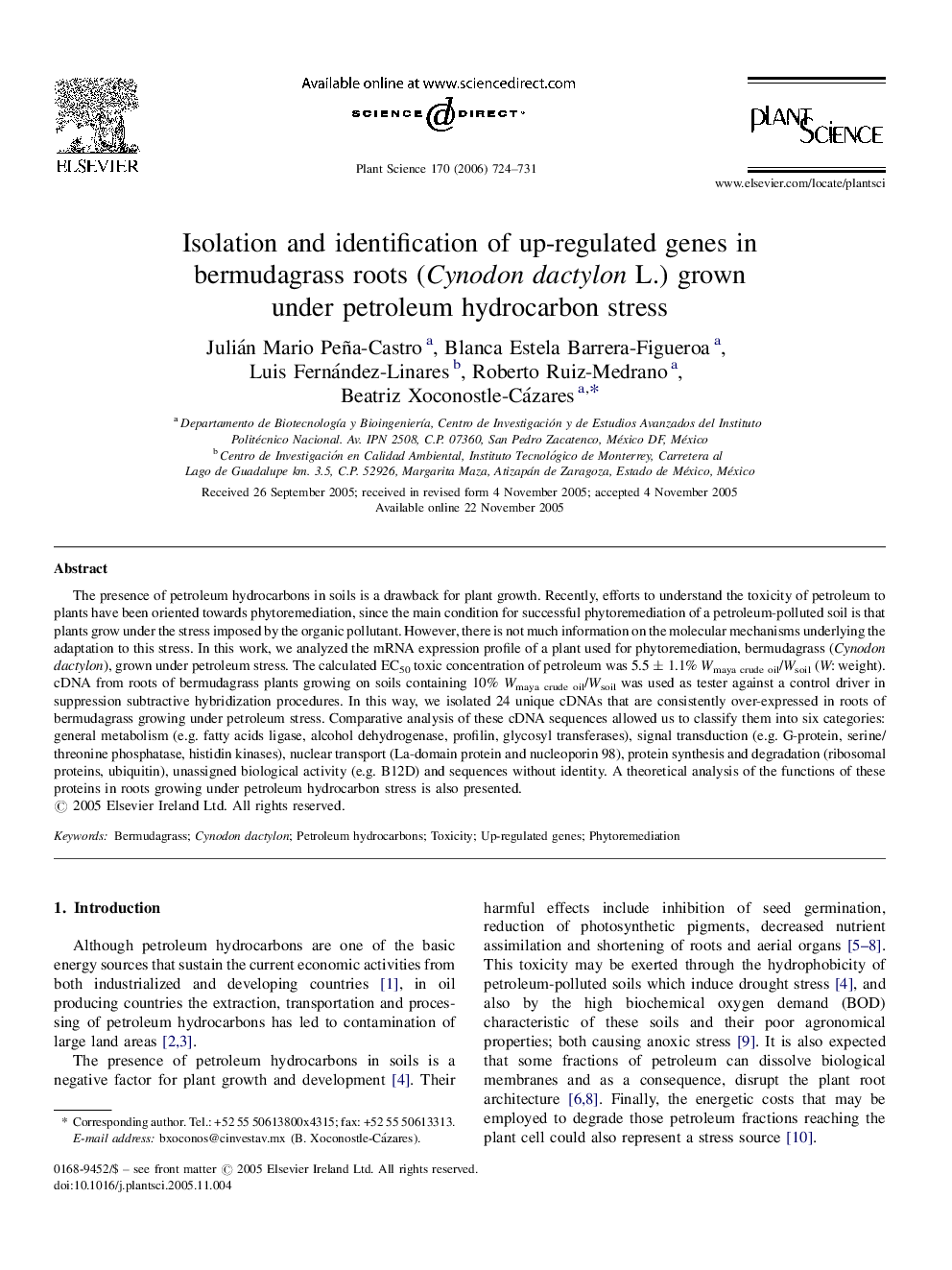| Article ID | Journal | Published Year | Pages | File Type |
|---|---|---|---|---|
| 2018767 | Plant Science | 2006 | 8 Pages |
The presence of petroleum hydrocarbons in soils is a drawback for plant growth. Recently, efforts to understand the toxicity of petroleum to plants have been oriented towards phytoremediation, since the main condition for successful phytoremediation of a petroleum-polluted soil is that plants grow under the stress imposed by the organic pollutant. However, there is not much information on the molecular mechanisms underlying the adaptation to this stress. In this work, we analyzed the mRNA expression profile of a plant used for phytoremediation, bermudagrass (Cynodon dactylon), grown under petroleum stress. The calculated EC50 toxic concentration of petroleum was 5.5 ± 1.1% Wmaya crude oil/Wsoil (W: weight). cDNA from roots of bermudagrass plants growing on soils containing 10% Wmaya crude oil/Wsoil was used as tester against a control driver in suppression subtractive hybridization procedures. In this way, we isolated 24 unique cDNAs that are consistently over-expressed in roots of bermudagrass growing under petroleum stress. Comparative analysis of these cDNA sequences allowed us to classify them into six categories: general metabolism (e.g. fatty acids ligase, alcohol dehydrogenase, profilin, glycosyl transferases), signal transduction (e.g. G-protein, serine/threonine phosphatase, histidin kinases), nuclear transport (La-domain protein and nucleoporin 98), protein synthesis and degradation (ribosomal proteins, ubiquitin), unassigned biological activity (e.g. B12D) and sequences without identity. A theoretical analysis of the functions of these proteins in roots growing under petroleum hydrocarbon stress is also presented.
